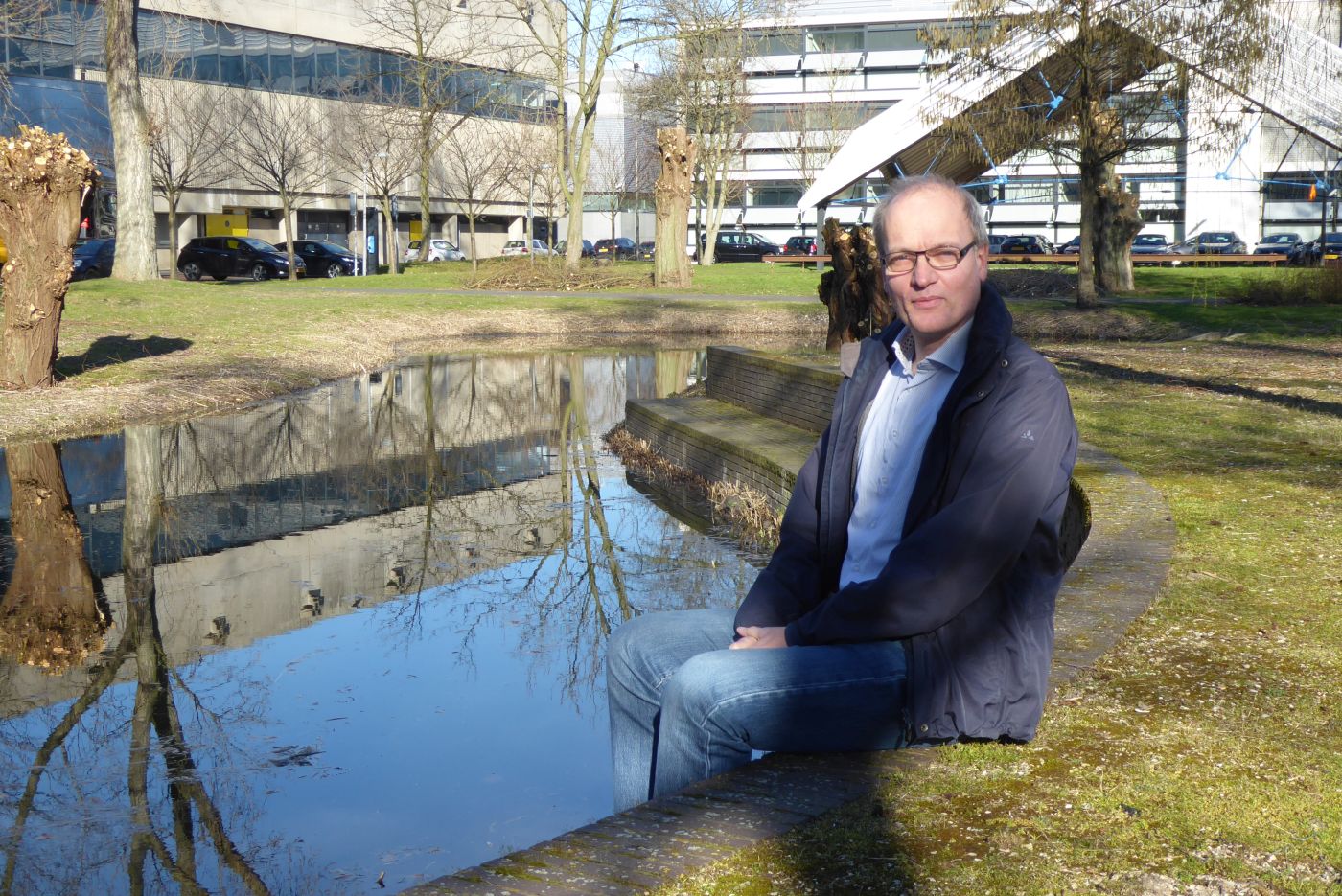You received a voting slip to vote for the water board for the wider Delft region. What now? Delta debunks five assumptions of the elections and gives five reasons to vote.
Erik Mostert: In one-and-a-half hours you good a good idea of the choices (photo: Jos Wassink)
Nederlandse versie
1. Voters have no say
Not all the seats on the board are up for election, that’s true. Of the 30 seats on the Board of the Hoogheemraadschap Delfland, nine are allocated to industry, farmers and nature. Twelve political parties are fighting for the remaining 21 seats. This means that two thirds of the Board are elected positions.
2. There’s nothing really to choose
“Many of the tasks of a water board, such as water safety and water quality, are largely technical,” says Prof. Nick van der Giesen (Civil Engineering and Geosciences). “But choices need to be made within that, and opinions differ. Sailors, rowers, swimmers and recreational fishers are often more aware of the issues at play than people who are less involved in water.”
Dr Erik Mostert, university teacher of water management and water rights in the Faculty cites the example that the water tax exemption for people on social benefits was scrapped four years ago. Since then, everyone pays for waste water purification. There are other subjects as well that are cause for debate. “Just think about creating eco-friendly river banks or energy recovery in purification plants. Or installing a system to allow fish to safely pass through the water pumps. All of these take money so the question is, how much are you prepared to contribute? These are all choices that have to be made.”
3. Water boards are boring
Maybe elsewhere, but definitely not in Delft. Years ago TU Delft and the Hoogheemraadschap Delfland started collaborating on research. Other research institutes and government agencies followed. The collaboration resulted in a testing ground for flooding (Flood Proof Holland) and a demo of urban water storage (Waterstraat) in the Green Village. The water board research falls under the VPDelta
4. It’s not relevant at all
Hoogheemraadschap Delfland is responsible for the welfare of 1.2 million people and has a budget of EUR 220 million. That’s pretty relevant.
5. I suppose I have to go through all the party manifestos?
No you don’t. Just as he did four years ago, Mostert is organising an election debate. “You pay for it so you should also have a say in the way the money is spent. During the election debate you can see the candidates and in one-and-a-half hours you can good a good idea of the choices.”
Which party do I choose?
- The water board election debate will be held on Thursday 14 March from 16:15 to 18:00 in lecture hall C at Civil Engineering and Geosciences. (Dutch only)
- You can also join the Water Board election debate on Friday 15 March from 17.30 to 19.30 at IHE Delft (English only).
- Short of time? Then take the online survey.
Do you have a question or comment about this article?
j.w.wassink@tudelft.nl


Comments are closed.